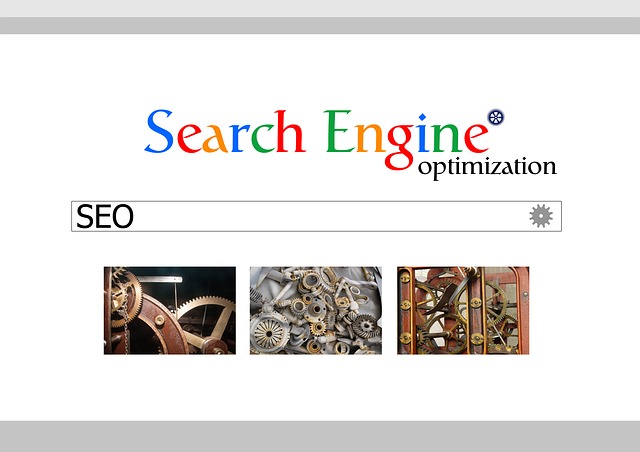AI-powered search represents a paradigm shift in information interaction, leveraging machine learning to understand user queries and deliver personalized, contextually relevant results. This technology enhances user experiences, streamlines workflows, and revolutionizes knowledge access in a data-rich world. By analyzing user intent, context, and behavior, AI search offers more precise and tailored suggestions, boosting productivity across sectors. Success is measured beyond traditional metrics, focusing on user satisfaction, engagement, and the system's impact on strategic business goals, aligning AI tools with strategic objectives for better decision-making and growth.
In today’s data-rich landscape, understanding and leveraging AI-powered search is crucial. This technology promises to revolutionize information access by delivering relevant results at lightning speed. From enhancing user experiences to driving business growth, the potential of AI search is vast. This article explores the evolution from traditional search to AI-driven systems, unearths key components making this shift possible, and delves into the compelling benefits and diverse applications – ultimately focusing on defining and measuring the Return on Investment (ROI) of implementing AI-powered search solutions.
- Understanding AI-Powered Search: Unlocking New Possibilities
- The Evolution of Search: From Traditional to AI-Driven
- Key Components of an AI-Powered Search System
- Benefits and Applications: Revolutionizing Information Access
- Measuring Success: Defining ROI in the Age of AI Search
Understanding AI-Powered Search: Unlocking New Possibilities

The advent of AI-powered search marks a significant shift in how we interact with information. Traditional search engines, while powerful, often struggle to comprehend complex queries and provide contextually relevant results. In contrast, AI search leverages machine learning algorithms to understand user intent, interpret natural language, and deliver highly tailored responses. This paradigm shift promises to unlock new possibilities, from enhancing user experiences through more accurate and personalized results to streamlining workflows across various industries.
AI-powered search isn’t just about improving speed and accuracy; it’s also about enabling deeper insights and connections within vast datasets. By learning from user behavior and continuously refining its algorithms, AI search can identify patterns, uncover hidden relationships, and provide intuitive suggestions. This capability is particularly valuable in today’s data-rich environment, where making sense of the information overload has become a pressing challenge. As AI search continues to evolve, it holds the potential to revolutionize how we access knowledge and make informed decisions.
The Evolution of Search: From Traditional to AI-Driven

The evolution of search has undergone a remarkable transformation from traditional methods to the advent of AI-powered search. In the past, searches were primarily text-based and relied heavily on keywords, often leading to results that were relevant but not always precise. This limitations sparked the development of intelligent search algorithms, driven by artificial intelligence (AI).
AI-powered search leverages machine learning and natural language processing to understand user intent better. It goes beyond mere keyword matching by analyzing context, semantics, and user behavior patterns. This advanced approach ensures that searches produce more accurate, relevant, and personalized results. The shift towards AI-driven search promises to revolutionize how we interact with information, making knowledge discovery faster, more efficient, and tailored to individual needs.
Key Components of an AI-Powered Search System

An AI-powered search system is more than just a sophisticated tool; it’s an ecosystem of key components working in harmony to deliver intelligent results. At its core, these systems utilize advanced algorithms and machine learning models that analyze vast amounts of data with remarkable speed and accuracy. Natural Language Processing (NLP) plays a pivotal role by enabling the system to understand user queries as human language, deciphering intent rather than just keywords. This context-awareness ensures relevant search outcomes.
Moreover, AI integration enhances search functionality through features like semantic search, where the system interprets the meaning behind queries, and personalized results, tailored to individual users’ preferences based on past interactions. Data indexing and storage are crucial aspects, allowing for efficient retrieval of information from diverse sources. These components collectively contribute to a seamless, intelligent search experience that far surpasses traditional methods, making AI-powered search an indispensable tool in today’s data-rich landscape.
Benefits and Applications: Revolutionizing Information Access

The advent of AI-powered search has revolutionized information access, transforming the way we interact with data and knowledge. Unlike traditional search methods that often deliver overwhelming results, these intelligent systems employ sophisticated algorithms to understand user intent and context. This not only improves relevance but also ensures users find exactly what they need—saving time and effort significantly.
One of the key benefits is personalized search experiences. AI can analyze user behavior, preferences, and past queries to provide tailored suggestions and results. In various applications, from research and education to business operations, this capability enhances productivity and efficiency. Moreover, AI-powered search tools can adapt to new information sources and trends, ensuring users stay ahead of the curve with access to the most relevant and up-to-date data.
Measuring Success: Defining ROI in the Age of AI Search

In the era of advanced AI-powered search, defining and measuring success has become a nuanced endeavor. Unlike traditional metrics, evaluating the Return on Investment (ROI) for intelligent search requires a broader perspective. Success is not solely determined by the number of clicks or page views; instead, it delves into user satisfaction, engagement, and the impact on business goals. For instance, an effective AI-powered search system should enhance productivity by providing relevant information swiftly, thereby improving overall efficiency.
This shift in measurement encourages a more holistic approach to understanding the value brought by intelligent search tools. As AI continues to evolve, so does our comprehension of ROI. By aligning search capabilities with strategic objectives, organizations can ensure that their AI investments lead to tangible improvements, fostering better decision-making processes and ultimately driving business growth.
AI-powered search is transforming information access, offering unprecedented possibilities for businesses and users alike. By understanding its key components, leveraging its benefits across various applications, and thoughtfully measuring success through defined ROI, organizations can harness the full potential of this evolving technology. The future of search is here, and it’s intelligent.
